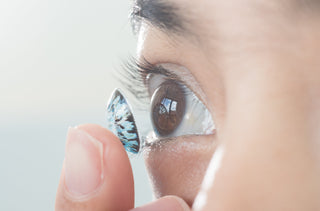Blue light is everywhere - can you see it? It's the light that illuminates from your smartphone, computer, TV and tablet screen. It lights you up at work, at home, on the road, and at the sports center. Its low energy consumption and long life make it an economic and ecological choice.
However, blue light can have adverse health effects, mainly on sleep and your eyes.
Here's how blue light can affect you:
Sleep: Exposure to intense blue light, especially in the evening, can disrupt the natural sleep cycle. Blue light suppresses the production of melatonin, a hormone that regulates sleep, making it difficult to fall asleep and reducing sleep quality. This is a particular concern for people who use electronic screens before bed.
Eye fatigue: Looking at computer screens or electronic devices for long periods can cause eye fatigue, also known as dry eye syndrome. This can result in symptoms such as dry eyes, stinging, redness and headaches.
Circadian rhythm regulation: Besides disrupting sleep, nocturnal exposure to blue light can disrupt the circadian rhythm - the internal biological clock that regulates our sleep-wake cycles - with possible long-term health consequences.
To reduce the harmful effects of blue light, here are a few tips:
Reduce evening exposure: Avoid using electronic devices before going to bed. Use filters or applications that reduce the amount of blue light your screen emits if necessary.
Adequate lighting: Use light bulbs with a warm colour in the evening, and ensure you have sufficient lighting when working on a computer or reading on a screen.
Blue light filters: Some glasses and screen filters are designed to reduce exposure to blue light.
Speak to your IRIS optometrist about filters you can use on your glasses to help you maintain a better quality of sleep and healthy eyes.





















































